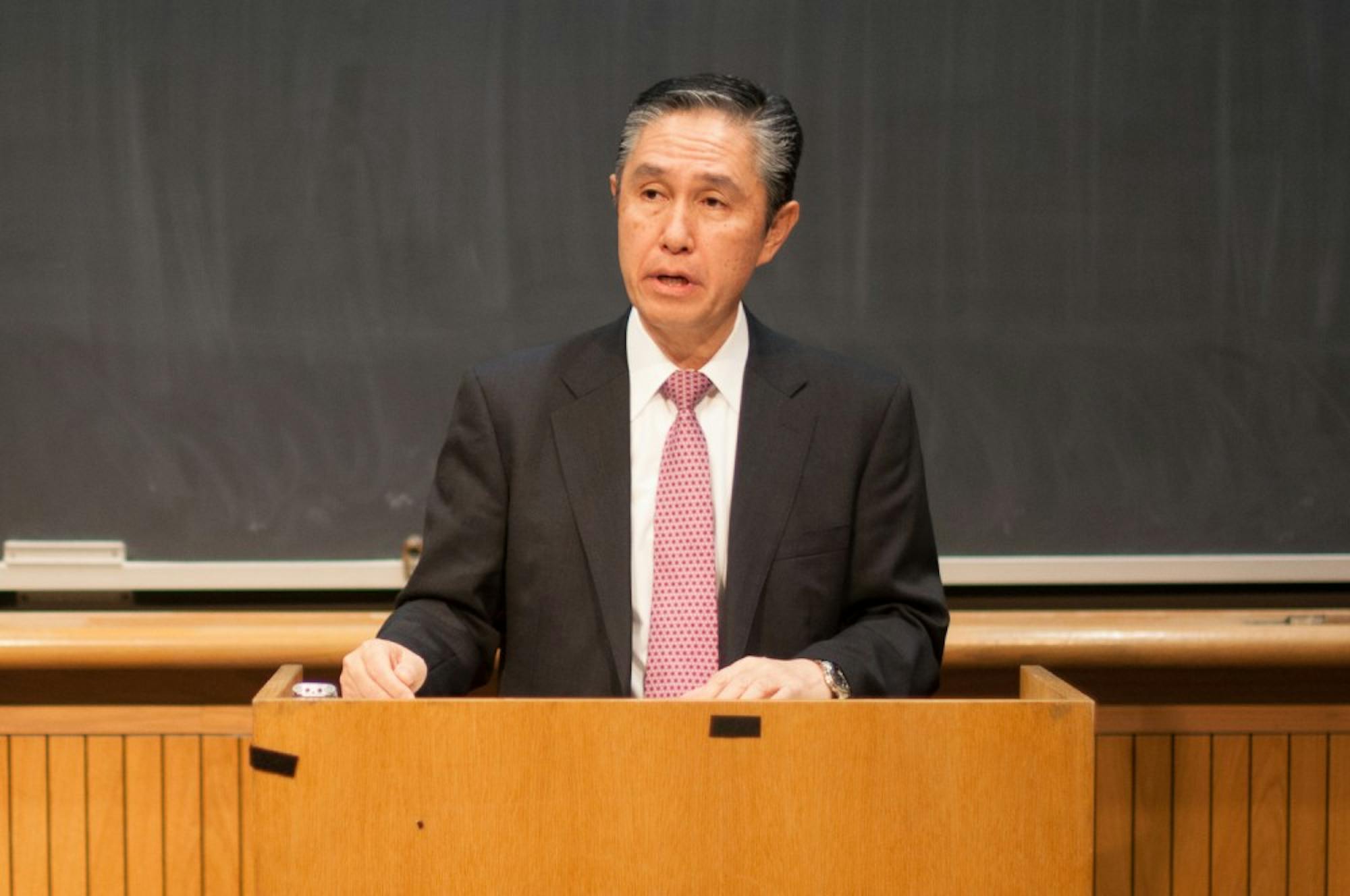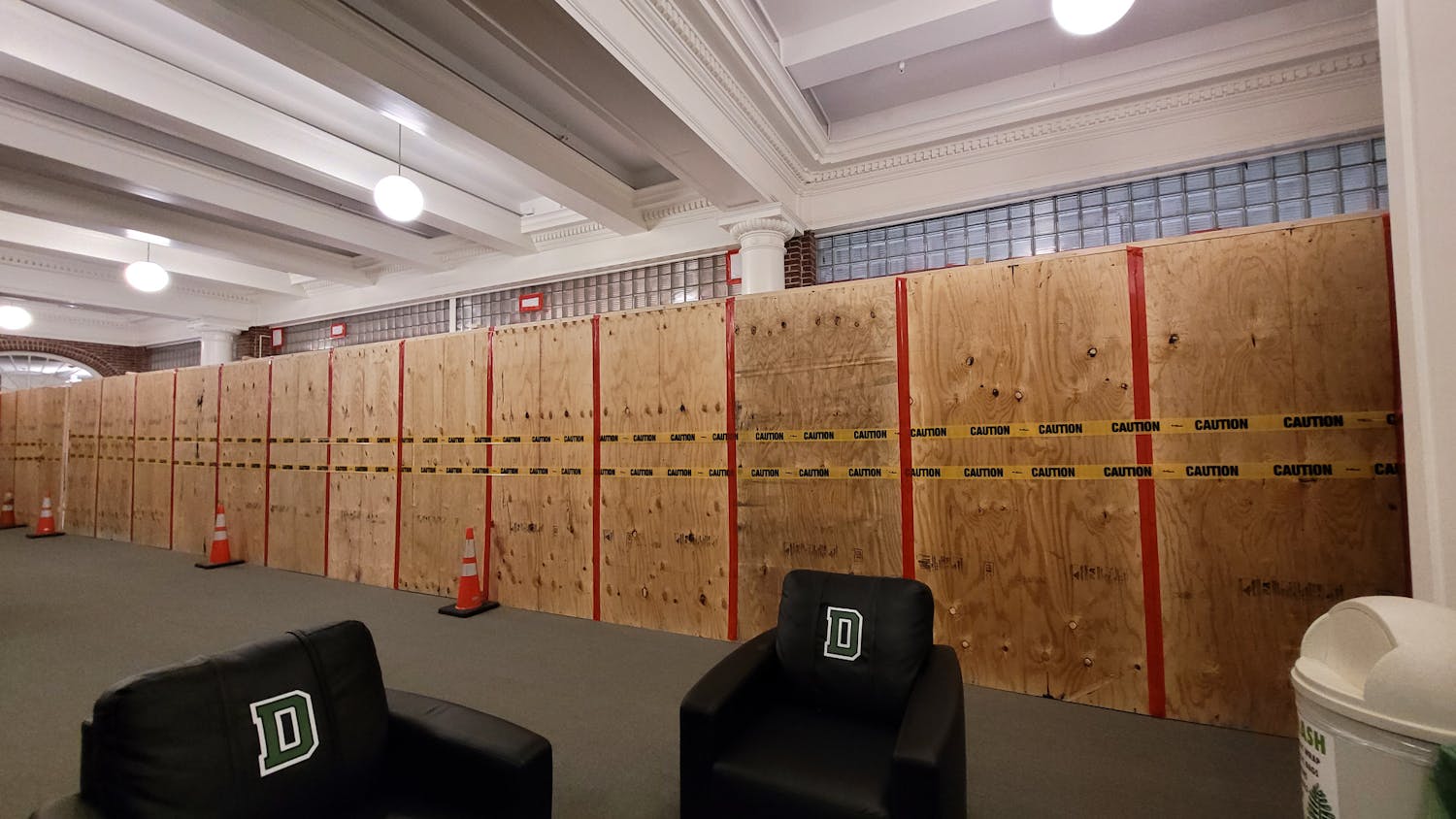Fackler began with a brief history of the Fukushima disaster, noting that he generally skips this background information while speaking to Japanese audiences. One of the first foreign journalists to be allowed access to the Fukushima plant in the aftermath of the disaster, Fackler said he often discusses Fukushima as a “triple” disaster, with the earthquake and tsunami serving as the first two and the nuclear disaster serving as a third, man-made tragedy.
“The argument, and I think it’s a compelling one, is that what happened really could have been prevented,” Fackler said.
Extracting themes from intellectual discourse in Japan following the accident, Fackler said many felt the disaster would serve as an impetus to make difficult changes to Japan’s political system, which is often dominated by strong ties between politicians and the nuclear industry. Rampant distrust of government following the accident has yet to lead to a political shakeup, Fackler said.
“Has Japan missed opportunities for change?” Fackler said. “At one level, clearly yes. The same people are in charge, and the same imperative to minimize it is there. But having said that, is nothing changed? The answer to that is no.”
Fackler took questions from the audience, including an inquiry into the level of sensationalism introduced by the Western media and a discussion of whether or not the responsibility for cleanup should have fallen to Japan’s “nuclear village.”
In his introductory remarks, interim vice provost Lindsay Whaley said Fackler’s lecture and the two-day conference intended to celebrate the study of Japanese culture and language, recognize those who have undertaken these studies and honor the historical relationship between Dartmouth and Mitsui and Co., a trading, investment and service company.
A Mitsui representative also offered brief introductory remarks before Fackler began his lecture. The company has a longstanding relationship with the College that can be traced back to the early 1900s, when a member of the Mitsui family received a degree in 1915.
In recent years, the relationship between the College and Mitsui has remained active, and in 2011 the company donated $3 million to the College to endow the Mitsui Chair in the Study of Japan. This position is currently held by government professor Yusaku Huriuchi, who helped to organize the conference along with history professor Steven Ericson.
The conference, titled “Japan Studies at Dartmouth: Educating Global Citizens,” included several panel presentations featuring students and alumni and a roundtable discussion. Among these panelists were Mark Davidson ’82, the minister counselor for public affairs at the U.S. Embassy in Tokyo and Carol Gluck, modern Japan expert and Columbia University history professor.
Conference participants were drawn from across the Dartmouth community and the globe and included numerous undergraduates. Students interviewed at Fackler’s opening lecture offered diverse reasons for attendance, but often referenced their coursework.
Brendan Johnson ’16, a history major interested in East Asian studies, said his history professor had recommended that he attend the lecture and he is fascinated with Japan.
“In East Asian Studies, Japan is the most interesting to me,” Johnson said. “The talk was really interesting, and I enjoyed Fackler’s critique of the Western media.”
Abhishek Parajuli ’15, who was working for the United Nations when the Fukushima disaster occurred, said he was interested in Japan’s response to the accident.
“It was a topic of conversation at the time,” Parajuli said. “There was a lot of surprise at how Japan was bungling the response.”
While he enjoyed the lecture, Parajuli said he wished Fackler would have probed more deeply into the decision calculus Japan’s government might have used in determining which information to release to the public.
“I understand hindsight is 20/20,” Parajuli said. “But at the time, there may have been well-intentioned reasons that the government acted as it did.”




